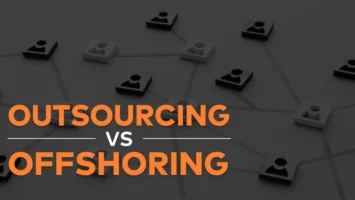Top 6 B2B eCommerce platforms

There is no denying that eCommerce is booming. According to an article by Forbes, more than 20% of retail purchases are expected to take place online by the end of 2023, and this number is predicted to rise to 26% by 2026. The same year, the market size is predicted to reach $8.1 trillion, which is nearly 2 trillion more than in 2023. The way we do our shopping changes at a rapid pace. One of the consequences is the growing number of solutions that are used to provide eCommerce services. In this article, we will have a look at some of the most popular platforms for online stores, which can be used for both B2C as well as B2B needs.
BigCommerce
BigCommerce was founded in 2009 and has grown to become one of the major players in the eCommerce space. The solution provides several themes without any additional costs. Users are given a set of functions that enable full optimization of their site for search engines, and the images are automatically optimized. The website creator is easy to use, as it is based on a “drag & drop” approach. Shops have no problems adding discount codes, and the integration with PayPal is seamless. Other important functionalities include integration with e-mail marketing services, detailed reports and the addition of user accounts with different privileges. The platform provides 24/7 support, has multiple payment plans, and can be tested for free during a 15-day period. As for the disadvantages – though basic functionalities are affordable, any additions that expand functionalities are on the more expensive side. Well-known BigCommerce platforms include the automotive giants BMW and MINI.
WooCommerce
WooCommerce is a plugin designed specifically for WordPress, which is one of the most popular and appreciated web content management systems. The plugin enables the integration of a WP site with store functionalities for both physical and digital products. This is an open-source solution, which means you can add any functionality and integrations that come to your mind, the customization options are nearly limitless, and you can design the shop on your own or with the help of a software agency to make sure it meets your business goals as well as customer expectations. WooCommerce has many ways of integrating with marketing, payment and shipping functionalities, and there are a lot of options to choose from. Other advantages include free content, frequent updates, detailed reporting, numerous specialists eager to share their experience and a big community. The downsides worth mentioning are no direct support from the WooCommerce team, manual updates, and potential compatibility issues with add-ons (especially older ones). Some popular brands that use WooCommerce are The Home Depot, UPS and the famous musician Björk.
PrestaShop
PrestaShop makes setting up an online store cheap and easy. It is one of the oldest eCommerce solutions out there, founded in 2007 and constantly improved. No technical knowledge is required to set up the store, but eCommerce configuration can be complex in general and an inexperienced user may need some time to fully understand for maximum effectiveness. The solution is free and does not involve monthly fees. Similarly to WooCommerce, PrestaShop is also an open-source platform and is characterized by many customization options. Though configuration may require some skill, management is not difficult. Updates and improvements are frequent, and there are forums for both developers and business owners. The main disadvantages of using PrestaShop include paywalls for many useful functionalities, the difficulty level quickly scales up with bigger and more complex platforms, and the possibilities can be overwhelming for the inexperienced user. Famous brands using PrestaShop include Samsung, Decathlon and Vodafone.
Magento
Today, Magento remains among the best B2B eCommerce platforms. It’s another open-source solution, first released in 2008. Magento is quite complex, requiring programming knowledge to set up and configure. The CMS is user-friendly, but its management will require training. Though these may seem like big disadvantages, the pros are worth it, with huge capabilities and many modern solutions on the table. Magento comes with a free and paid plan. At the moment of writing, there are three options available. This eCommerce platform works best for shops that assume future progress, with a lot of possibilities for expansion. Frequent updates improve existing functionalities while adding often innovative solutions. Thanks to the multistore option, business owners can prepare multiple eCommerce platforms in one shop. Magento also makes SEO easier and helps cut costs in this area. The biggest downside of Magento is probably its complexity, with difficult eCommerce configuration, but if you are planning to hire a professional team anyway, then this is not really an issue. Future updates may also need to be performed manually, possibly with the need for specialists. These factors can contribute to high initial costs when compared to other solutions, but the result is a highly complex and modern platform with a lot of capabilities and a view toward the future. Known brands that use Magento include FC Liverpool, Ahmad Tea and Jaguar. We have a dedicated article on Magento here.
Shopify
Shopify is a Canadian eCommerce store platform that is successfully used worldwide by businesses of all sizes. It is considered one of the easiest solutions of this kind for online sales. It is known for high performance and good security, and it’s quite easy to set up. Stores running Shopify are easy to navigate and intuitive to use both for clients as well as the team. Similarly to other solutions of this type, it features a lot of customization options, it’s flexible and each theme is UX-tested. There is a rich app store to add more functionalities, and you can always ask a developer agency to build one for you. The solution provides detailed analytics and an easy way to manage ads. Owners can also integrate their shops with giants such as eBay, Amazon and Facebook. The most notable disadvantage is that Shopify charges a commission on each product sale. There are also limited checkout capabilities and limited options for international stores without the Shopify Plus plan. Still, many famous brands use Shopify for their stores, including Red Bull, Sephora and Netflix.
IdoSell.
IdoSell is a SaaS solution servicing over 6.500 shops worldwide. It scales automatically and features a lot of free tools, integrations and functionalities. It is known for its dedicated customer support, so contrary to some other known solutions, you are not left alone if there is an issue. It is also well-integrated with Google Analytics and with the most popular social media channels. Automatic updates and good performance are another plus. When it comes to disadvantages, it is definitely less customizable and flexible than, e.g., WooCommerce, and the pricing is based on fixed subscription plans. It also has a notably smaller community than the other options listed above. The company received numerous awards across more than a decade of its activity, and has serviced many companies, especially in Poland.
Conclusion
With online shopping quickly becoming the main path of commerce, the number of tools used to create online stores continues to increase. The team at createIT is proficient at providing state-of-the-art eCommerce solutions from start to finish. We also help improve existing stores through scaling, new integrations, implementations to new markets and more. Contact us to receive further information and don’t forget to check out our work.



















